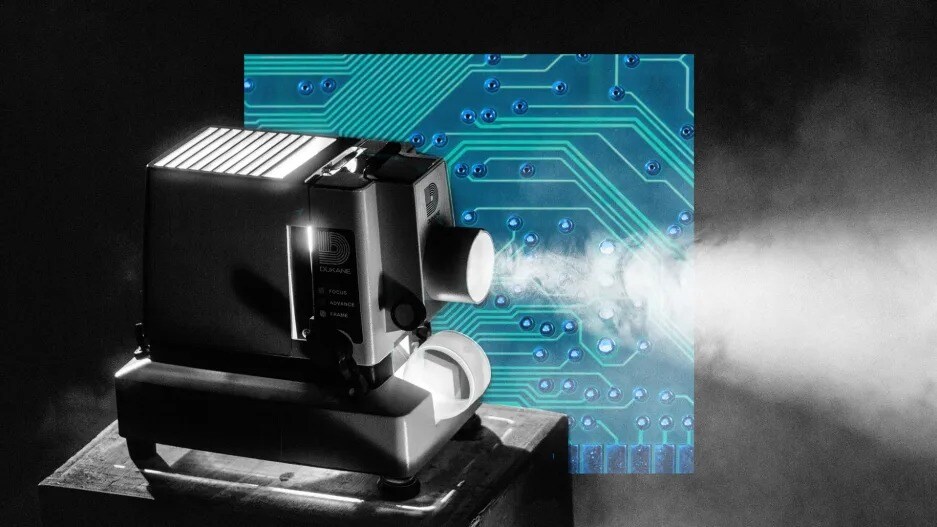- | 9:00 am
This startup will let AI direct the documentary of your life story
Orson is building an AI director that will interview you for a personal documentary for your relatives or even coworkers.

A startup called Orson is enlisting AI to help you tell your life story.
Orson’s new platform, StoryShop.ai, enables users to chat with an automated director for a reality-show-style interview, with options designed to gather family stories for future generations, help engaged couples tell the world how they got together, and let coworkers introduce themselves to one another. Then, the system automatically stitches those responses together with music and visuals, with no need for human editing.
“You just have to answer questions,” says founder and CEO John Ehrhard.
Ehrhard, who has decades of experience in the unscripted TV business, says he started the company after realizing that despite his professional background, his home movies were still fairly typical: shots of birthday parties, kids playing sports, and the like. Ehrhard is fully aware of the effort that would generally go into creating something more akin to a documentary, and his company will use AI to handle much of the work, from running interviews to potentially even generating B-roll footage to illustrate stories users tell.
“This beautiful gift of generative AI fell in our lap,” says Ehrhard.
The platform’s name is, naturally, inspired by celebrated director Orson Welles, and Ehrhard says keeping the human feel is very important to the project, which shapes how the company deploys AI. “Part of the magic of directing is you’re asking people to be very vulnerable and authentic,” he says. “You have to direct people—you can’t just put a piece of text [instructions] up there, and Orson obviously was one of the great directors.”
So far, therefore, the packages available on the StoryShop site still use prerecorded questions from a human director, since autogenerated avatar interviewers can seem stilted and artificial, though Ehrhard aims to find a good solution with AI audio and perhaps a visual component by the end of the year. The company is also training AI models to generate good follow-up questions, since AI chat systems have a tendency to run off on tangents if not properly calibrated.
In general, a mix of technical experts and TV veterans are working on evolving the software and building data sets of sample interviews for AI to learn from—something Ehrhard says doesn’t currently exist, since many of the important interactions aren’t seen in finished shows. The company has also been using the product internally, with employees answering a “Weekly What’s Up” interview question to produce a short video that kicks off Zoom checkins, and new employees and board members watching interviews with colleagues and recording their own in order to get to know each other.
“It helped expedite this chemistry and connection—make everybody feel comfortable,” Ehrhard says.
At present, StoryShop users pay for the site’s video interview products, at prices like $69 for a company getting-to-know-you interview product, and $99 for a wedding couple interview package, which is far cheaper than commissioning a human-directed video. The product also delivers near-instantaneous turnaround time.
In the future, he envisions that some videos might be backed by corporate sponsors or integrated into existing products through deals with StoryShop, like a baby goods company sponsoring interviews with new parents or a genealogy site including interviews with family elders as part of a subscription package. And the product’s AI features will continue to evolve, guided by team members’ experience building television shows.
“The unscripted world of TV is really interesting,” he says. “You don’t know where the story is until you get down the path of it.”







































